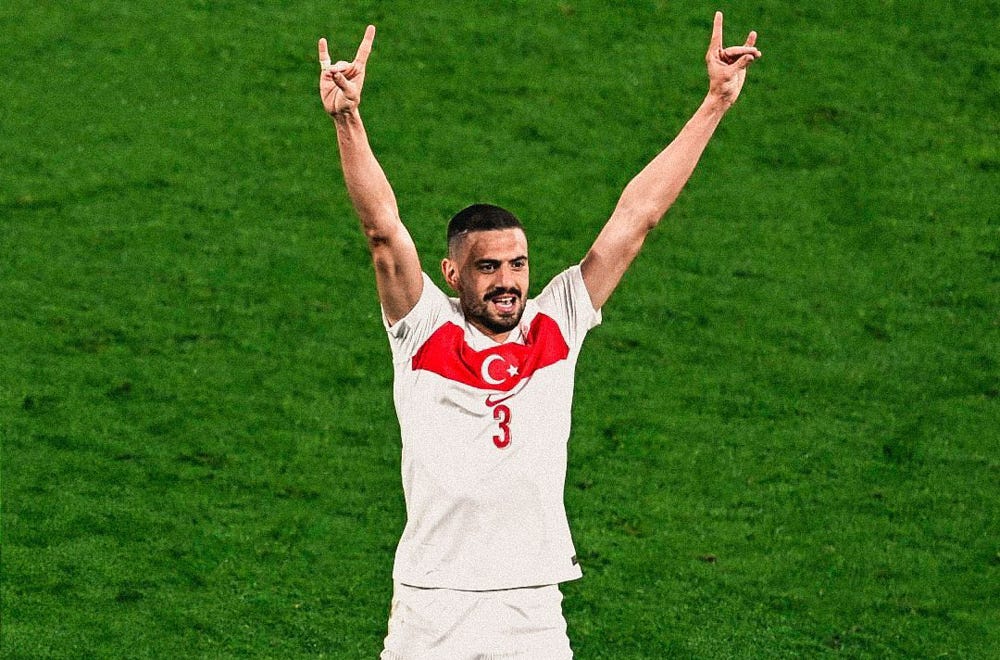There was the Hand of God. Then the Hand of Mert. But did you hear about the Hand of Mike Tyson?
In this week’s recap:
Anti-refugee riots break out
Controversial Grey Wolf sign causes uproar
Grey Wolf leader’s murder trial ongoing
Cabinet changes, judicial package arrive
Regional wars reverberate in Ankara
A proper gander at propaganda
Also from us this week:
Diego Cupolo on the risks and benefits of Ankara’s SCO/BRICS ambitions
Tomorrow: Verda Uyar delivers the latest inflation news in our Economy recap

Destroyed houses, burned stores and cars turned upside down. Since Sunday evening, multiple violent mobs have targeted Syrians in Turkey as anti-refugee hate surfaced once again.
The attacks started in Kayseri on Sunday evening after reports emerged alleging a Syrian man had sexually abused a seven-year-old girl, who was his relative.
On Monday, Interior Min. Ali Yerlikaya wrote the suspect had been caught by citizens at the scene, after which the man was handed over to the police, detained and later arrested. The Kayseri chief public prosecutor's office immediately launched an investigation into the allegations.
Yet the situation escalated later that evening, when anti-Syrian riots erupted in the city. Yerlikaya said the events were “illegal” and “unfitting of human values”, while Pres. Erdoğan on Monday also spoke out against xenophobia, but blamed the opposition.
By Monday evening, the violence spread to other cities, as similar attacks against Syrians and their properties occurred in Hatay, Gaziantep, Konya and elsewhere. Then Tuesday, a 17-year-old Syrian boy was stabbed to death in Antalya.
While attackers shouted “Allah-u Akbar” and “Tayyip resign”, Yerlikaya announced that of the 474 people detained nationwide for “illegal, provocative actions”, 285 had a criminal record, some for migrant smuggling. Meanwhile, a deep fear has taken hold in much of Turkey’s Syrian community.
“We don’t know what will happen. All the Syrians stay home and do not go outside at all,” one Syrian refugee in Gaziantep told Turkey recap.
This comes after Erdoğan hinted Friday at normalization with Syrian Pres. Assad, saying: “There is no reason not to re-establish diplomatic relations with Syria.” He floated the idea of another ‘family holiday’ with the Assads, referring to a 2008 vacation in Bodrum.
“That was several years, several Turkish military incursions and thousands of Turkish troops before,” said Gönül Tol, director of MEI’s Turkish Program, adding there are many obstacles to improving ties with Damascus.
“The biggest impediment to normalization with Assad remains what Turkey is doing in northern Syria. Turkey is not there [to secure] its borders. Turkey is engaged in a nation building process. And that is the biggest problem from Assad's point of view,” Tol told Turkey recap. “I don't see Assad backing away from that.”
Anti-Turkey protests also broke out this week in Turkish-controlled northwest Syria, where local anger was directed at the Turkish flag, Turkish trucks and other Turkish elements. Four people died in clashes with the Turkish forces. The Kayseri events were likely a trigger, but the counter-protests were coupled with other developments, such as objections to Ankara-Damascus normalization.
Going forward, Tol said she does not expect Russia to be willing to accommodate Turkey in Syria. “The most reasonable path for Turkey is to go back to the Adana Agreement,” she said, meaning Turkey would continue cross-border operations against the PKK, but not control territory.
When it comes to the refugees, human rights organizations maintain Syria is not safe for returns.
“Practically, Syria is still a war zone and, according to international law, you cannot force people to return to a war zone. But Erdoğan is not known for respecting law, be it domestic or international,” Tol said, adding that refugees can only return via an agreement with Assad and also Russia.
Tol concluded there are no easy fixes for Ankara’s relations with Damascus as well as its unsustainable refugee policy, both of which may become increasingly problematic for Erdoğan.
“Turkish nationalism now has a new target. It used to be primarily the Kurds, and now Syrian refugees have become the target. So that makes nationalism less useful for Erdoğan,” she said. “He built his alliance [with the MHP], and he realized his political goals thanks to that military nationalist alliance. And now nationalism has come back to haunt him.”
– Ingrid Woudwijk

The ball is in your Bozkurt: Controversial Grey Wolf sign causes uproar
Keep reading with a 7-day free trial
Subscribe to Turkey recap to keep reading this post and get 7 days of free access to the full post archives.



